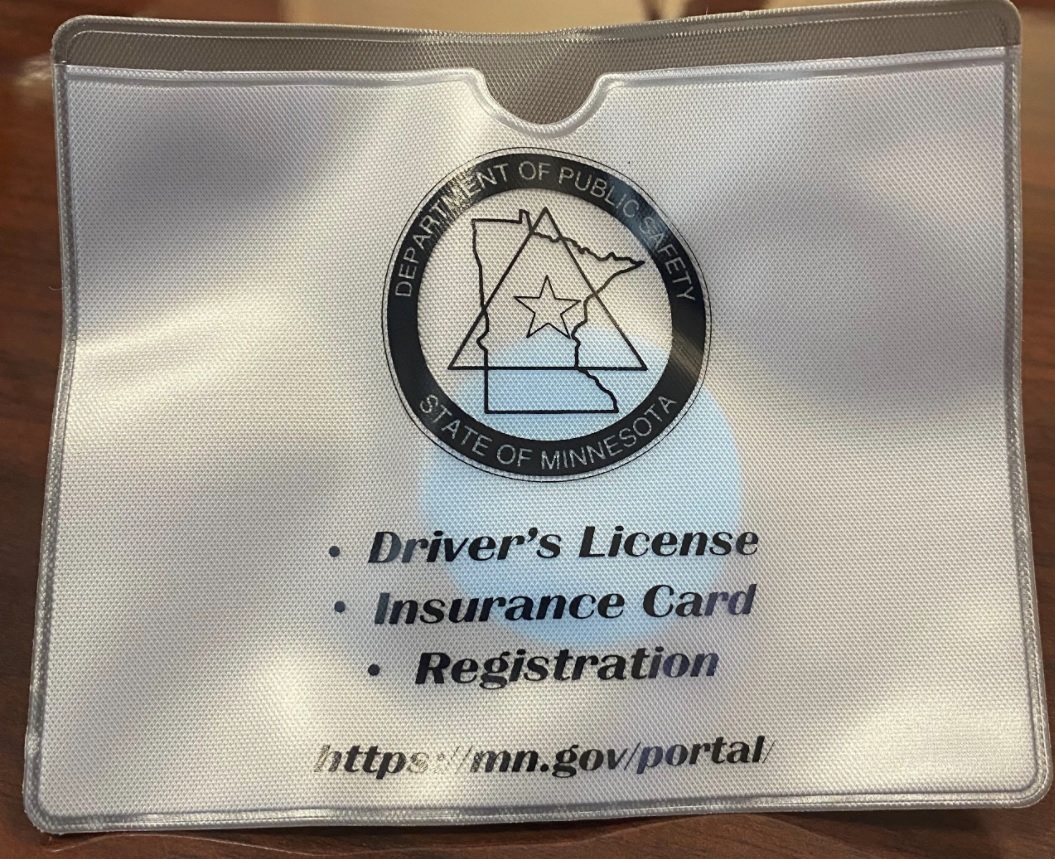With Democrats breaking promises to pass the George Floyd Justice in Policing Act in D.C., and the uncertainty of Minneapolis's upcoming public safety ballot measure, it seems, for now, police reform will have to come from the police.
On Thursday, we saw what that looks like.
The Minnesota Department of Public Safety recently purchased 2,000 “not-reaching pouches” for $10,000, spokesman Scott Wasserman tells us. The pouches, which clip prominently onto side A/C vents, will be distributed for free by the Minnesota State Patrol and local police forces. If drivers stow their ID, vehicle registration, and insurance card in them, the agency hopes “deadly force encounters” with police during traffic stops might decline.
The incredulous Twitter blowback was swift, loud, and considerable. The NAACP was not impressed, nor was Sen. Omar Fateh (DFL-Minneapolis).
Could the pouches send a message that people should be afraid cops will shoot them as they reach for documents? We asked Wasserman, citing the following tweets.
Have you tried simply not shooting innocent people instead?
— Ben the Extra Innings Rule Hater (@bkabak) September 16, 2021
Jesus Fucking Christ. They actually somewhat acknowledge that officers executing people reaching for documents (sorry--deadly force encounters--don't want to use active voice here) is a problem.
— Tallulah Shark (@MarzipanPiPlate) September 16, 2021
And the solution is provide little pouches for the potential victims?
Do the pouches present an impossible logistical and behavioral ask, making their practical use seem far-fetched? We asked Wasserman, citing the following tweets.
Whomst the fuck keeps their license anywhere but their wallet, literally ever? Do your officers take theirs out and put it in a neat pouch behind the sunvisor every time they get in a car? No? Why not?
— NazisShouldExplodeAndDie (@SpookyEvilOne) September 16, 2021
Why would my drivers license be in a pouch in my car and not in my wallet? Also, you still have to reach for this, so how is this going to look different than reaching for any other non-firearm items.
— Premium Dude (@cokedrank) September 16, 2021
He declined to comment.
The DPS pouch press release was eager to cite Valerie Castile, the mother of Philando Castile. Philando was fatally shot by St. Anthony cop Jeronimo Yanez during a 2016 traffic stop, and his mother has advocated for the pouches. “Ms. Castile, who lost her son in a deadly force traffic stop shooting, came to DPS with this idea and we worked side-by-side with Ms. Castile to make it happen,” Wasserman says.
Another, more fundamental change could come from groups advocating against “pretextual stops”—minor traffic violations that cops exploit to further investigate people, disproportionately people of color. Black and East African drivers accounted for a whopping 78% of such searches in Minneapolis from June 2019 through May 2020, the Star Tribune reports. Minneapolis, Brooklyn Center, and Ramsey Country have made recent efforts to end pretextual stops. Nationwide in 2020, around 10 percent of police killings (121 deaths) happened during traffic stops, according to Mapping Police Violence.
Now the pouches will be tasked with counteracting the systematic rot that produces those types of statistics. To many drivers, however, they'll be clumsy, plastic symbols of institutional powers yielding a misguided inch of change when society needs a mile.







